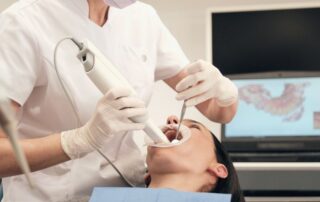Canker Sore Treatment: How to Get Rid of Canker Sores Fast
Have you ever had a tiny white, painful sore on your gums, tongue, or inner lip? That’s likely a canker sore. These small mouth ulcers are common and can ...
Preventive Dentistry: How to Avoid Cavities, Gum Disease, and Expensive Dental Treatment
ou’ve probably heard the saying, “prevention is better than cure”. This couldn’t be more true when it comes to your smile and oral health. Many dental problems start small. ...
Types of Teeth Stains: What Causes Discolouration and How to Remove Them
Did you know that one of the most common reasons people feel unhappy with their smile is because of tooth discolouration? And you may be one of those people, ...
Wisdom Tooth Infection: Symptoms, Risks, and When You Actually Need Emergency Treatment
Have you ever felt a sharp, throbbing pain at the back of your mouth and wondered if it is just your wisdom tooth coming in or something more serious? ...
Types of Toothpaste: Choose The Right One For You
When you walk down the dental care aisle of your local grocery, the number of toothpaste options can be quite overwhelming. There's whitening toothpaste, natural ones, sensitive-care formulas, among ...
Oral Cancer Screening in Calgary: What to Expect
Most people think of dental checkups as a way to keep cavities away. But did you know that regular visits can also help with early detection of oral cancer? ...





